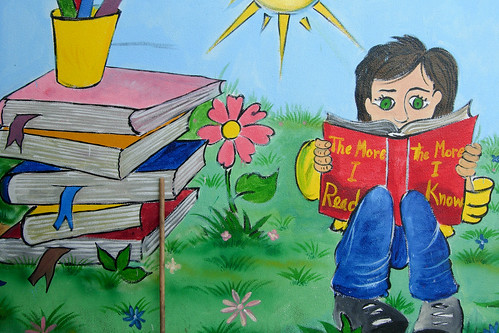 This morning we just had clean, flush air that was bulbous and bright with the early morning sun — the light reflects off the windows in the houses across the bay, on Belvedere Island, and they look like talismans, no, like beacons. No animal friends, though — well, lots and lots of birds, always.
This morning we just had clean, flush air that was bulbous and bright with the early morning sun — the light reflects off the windows in the houses across the bay, on Belvedere Island, and they look like talismans, no, like beacons. No animal friends, though — well, lots and lots of birds, always.
~~ ~~ ~~ ~~ ~~ ~~ ~~ ~~
Writing the Flood is on Saturday, 7/23 this month — want to join us and give some time to your writing?
~~ ~~ ~~ ~~ ~~ ~~ ~~ ~~
In studying for the GRE, I am reconnecting with the academic in me — by which I mean, I’m remembering how to think the way school wants us to think. I remember being good at this once upon a time, could easily determine what test-makers would determine to be the main point of a paragraph or reading selection, make test-appropriate inferences, think well inside their boxes.
When I withdrew from school at the end of 1993 because I no longer had any money to pay for classes (when I told my stepfather he couldn’t touch me anymore, and he ‘fired’ me from the company that had been paying for school, withdrawing all financial support, of course, from anyone making fear choices) , I wanted to be done with the mainstream Academy; what I was doing in school (computer science, primarily) seemed to have nothing to do with the real world I was living in, couldn’t help the friends I was meeting who’d been raped by fathers or brothers or mothers or grandfathers.
I wanted out, into real work with real people. And I began to distance myself, once I moved away from school, from my educational-class background: I wanted to forget how to talk like an academic, never mentioned where I went to college, thought that these things would make me suspect in the social change world, and, too, with the battered and formerly-battered women I wanted to help/work with.
Never mind that I completely associated that particular academic world with my stepfather and his pursuit of and into an elite society that deemed itself better than others and thus able to behave without compunction for any societal rules or taboos. You see, maybe, where this is going: Did I believe in my inside heart that if I stepped out of my book learning and school-taught self and into the ‘real world’ (i.e., working class society, or rather, non-profit class society, in my case) (Because, wait, working class can’t also be book learned? I was working with some simplistic thinking), I could be safe and free of his classist (and class-climbing) elitism and racism, free always, too, of his hands on my body?
It was a running away, a part of distancing myself from who I’d been when he’d had access to ever part of me. And now I am reaching back through the fire to get some of those parts back. I spent a good part of my 30s wrangling with a femininity I thought I’d left behind for good; and now I want the full breadth of my ways of thinking and interacting with the world: critical thinking and skepticism can be powerful tools, not just wedges or doors used to slam down social change movements (this has been my experience of them).
Is it possible to bring these old tools forward, learned under the worst conditions, and apply them fresh and new? I am afraid, now, that it’s been too long — I’ve been outside this way of thinking for such a long time, maybe I can’t step back inside. How do I reclaim it — or claim it new?
~~ ~~ ~~ ~~ ~~ ~~ ~~
What’s something you and/or your character used to be good at, something you used to love, something you left aside when you thought you were supposed to outgrow it, or when you began to associate it with something negative? Want to take 10 minutes for that old skill or practice today? Describe how it felt, what you liked about it, what happened when you put it down?
Thank you for the breadth of your abilities, including those you’ve lost awareness of. You’re amazing. Thank you for how easy you’ll be with others today, how you’ll let others be easy with you. Thank you for your words.
